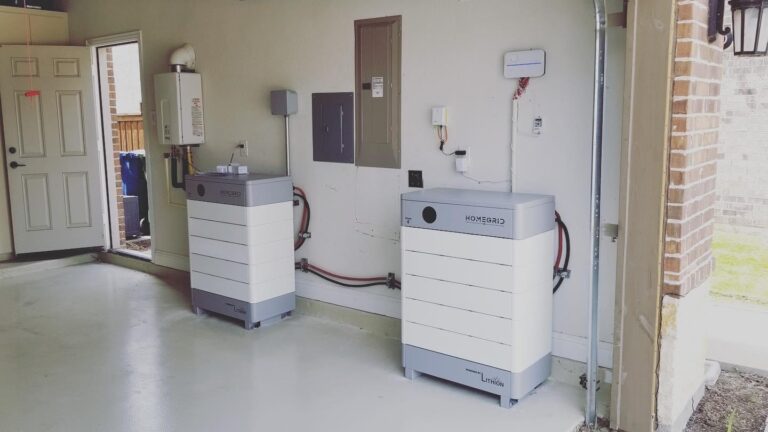Read This Guide Before Signing A Solar Contract
Solar energy use has grown rapidly over the past decade. Costs have dropped, while new ownership and financing models allow more Americans than ever to choose solar. Solar is now available as an affordable power choice in all fifty states, territories and the District of Columbia!
By understanding the basics of solar energy, your solar options, and the right questions to ask solar professionals, you’re well positioned to make the right decisions.
Lucky for you we’ve compiled the following Guide & Checklist For Homeowners Considering Going Solar!
How Solar Works
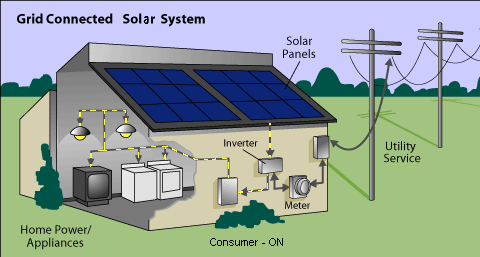
Today, most residential solar systems are photovoltaic (“PV”) – or solar electric – systems. This guide covers only PV systems. They generate electricity using two main hardware components:
Panels (or modules) that convert sunlight to electricity and Inverter(s) that convert(s) direct current to alternating current for use in your home.
Generating Electricity
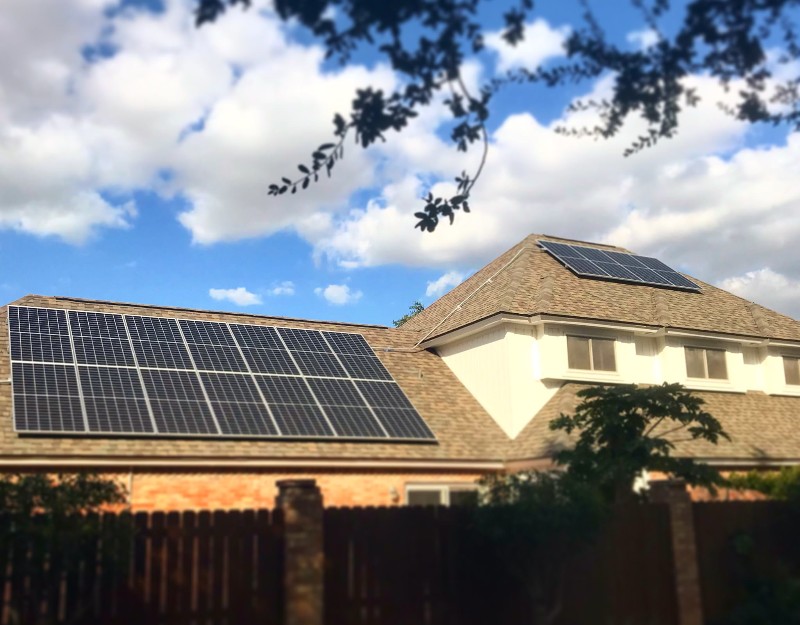
The amount of electricity (measured in kilowatt hours, or kWh) produced by any solar system depends on two factors:
The size (or “power rating”) of the system measured in kilowatts (kW) and the amount of sunlight the system receives.
The amount of sunlight a solar system receives depends on several factors, including:
Geographic location (e.g., Phoenix receives more sunlight on average than Seattle), Orientation (e.g., roof pitch or compass direction), and Shading (e.g., from chimneys, trees or neighboring buildings).
Your Home Solar Options
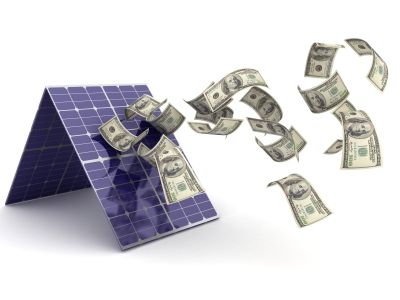
Today, most Americans have options for going solar. It’s important to understand the choices available to you under state law and the policies of your electric utility, the differences among those options, and selecting the right one for you. The main options available today are bulleted here and explained further below:
• Purchase a solar system (with cash or a loan) and own both the system and all the power it produces
• Enter a “power purchase agreement” (PPA) to buy (in price per kWh) the electricity the system produces
Purchase
You can purchase a solar system outright with cash or a loan. When you buy a system, you are the owner of the system and benefit from all electricity it produces. You are usually responsible for system upkeep, although most residential solar systems require no to low maintenance, and some providers offer maintenance services on purchased systems.
In most jurisdictions, you also are the beneficiary of any tax credits or other incentives that promote solar energy. If you sell your home, you may include the system in the sale just like any other major home component.
StarAlt Solar Tip: The industry standard for evaluating the cost of going solar is “cost-per-watt” or CPW. That is, the total cost of the system (Dollars) divided by the total power generation (Watts of Power).
Example:
2 kW Solar Power System (2,000 Watts)
Total Cost $8,000 Dollars
$8,000 divided by 2,000 equals $4 dollars per watt, or $4/W.
A fair and competitive cost-per-watt is in the $4/W to $5/W range in 2022.
Beware of companies that advertise special solar rebates and promotions, which can appear to be thousands of dollars off your system. In these cases, the solar installer is likely charging you a higher total cost-per-watt and offering the large rebate as a distraction.
Power Purchase Agreement (PPA)
In a power purchase agreement (PPA), the solar company owns the system on your property. You agree to purchase the electricity produced by that system for a specified rate and agreed-upon terms specified in a contract.
Under a PPA, you pay for the actual units of electricity generated from the system, rather than leasing the system for a monthly fee regardless of how much energy it produces.
A PPA is also a TPO arrangement because the solar company owns the system, but some companies give you the option to purchase the system after a certain amount of time.
Energy Storage & Batteries With Solar Power
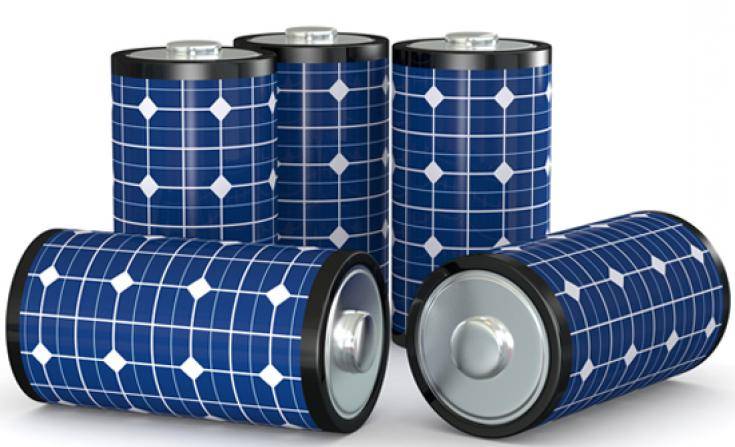
Consumers are increasingly interested in pairing solar with energy storage (“solar-plus-storage”). Batteries are currently the most common energy storage product for homeowners.
Energy storage is charged when power is available and releases the stored electricity when needed. You may look to install solar-plus-storage systems for backup power during a power outage, provided you choose the correct type of storage system.
Or you may want storage to control your electricity generated by the solar system when connected to a utility:
(i) and your utility rate depends on the time of day
(ii) that imposes fixed charges based on your peak usage during a short period of time during the month that’s difficult to control without storage or
(iii) that compensates you for any excess electricity generated by your solar system below retail rates
StarAlt Solar Tip: This can get complicated quickly, so be sure to ask your solar professional about the pros and cons of solar-plus-storage in your area to make the right decision.
Taking Care of Your Solar Power System
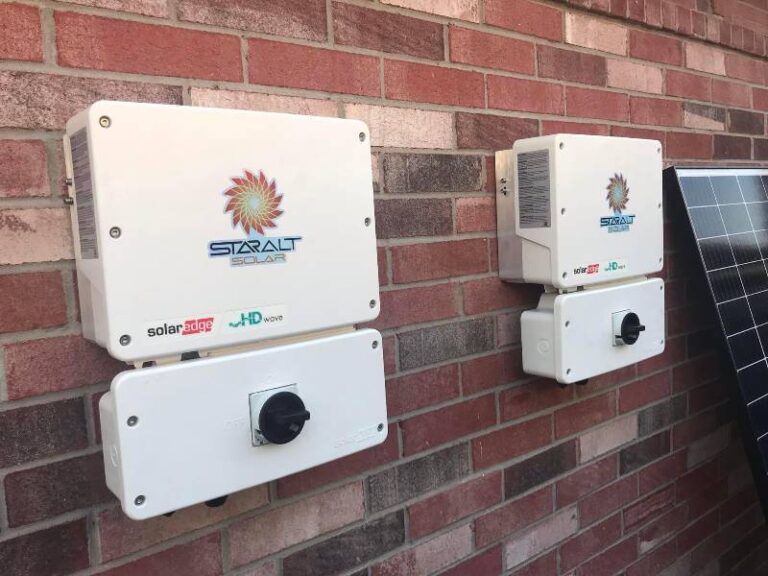
Because PV systems have no moving parts, regular maintenance is straightforward for a consumer.
First, make sure you have enough rain each year to wash the panels. If you live in a desert or highly dusty environment, periodic cleaning is recommended once per year with distilled water. The same is true if you are located near the ocean and receive marine mist that could leave salt deposits.
Second, talk with your solar company about whether you will need to trim nearby branches or do anything with the roof.
Third, if your system has monitoring that relies on the internet, maintain internet connection and learn how to use your monitoring system.
Finally, if your system is not working properly, contact your solar service provider. Never attempt to repair the system yourself.
StarAlt Solar Tip: In the Valley and beyond, we are fast becoming the go-to solar company that homeowners and insurance providers call when maintenance is needed. At StarAlt Solar we are dedicated to offering the best service at the best value for our customers.
Checklist: Key Questions To Ask Before Signing A Solar Agreement
What is the total system size?
What is the total cost of the solar system?
What is the cost-per-watt?
StarAlt Solar Tip: A fair and competitive cost-per-watt is in the $4/W – $5/W range in 2022.
How much do I pay up front, and how much over time, for how long?
How much electricity will the system generate each year?
Do you guarantee a minimum amount (a production guarantee)?
Can I expect to save money with this system? If so, how much? Based on what assumptions?
Will my system be net-metered?
How will I be compensated for excess electricity generated by the system?
If there is a blackout, what will happen to my system?
If I need storage in case of a blackout, what size system and system attributes do I need? Is the installation company licensed and insured?
StarAlt Solar Tip: Ask to see copies of license and insurance, and make sure they’re not expired. Also understand that without battery backup, if there is a power outage your system will likely become inoperable.
What will the system look like once installed? Will I receive a system design for my review and approval before installation?
Are there separate warranties for parts and labor?
What do the warranties cover and what are their durations?
What type of maintenance or cleaning is required? Are any maintenance services included? If not, who should I contact?
StarAlt Solar Tip: Ask for copies of product and labor warranties before you sign any paperwork.
Who deals with the utility and arranges for interconnection, inspections, and permission to operate?
Is performance of the system monitored and, if so, by whom? How can I monitor system performance?
Who should I contact if I have a question about the system following the installation? Who should I contact if my system stops working?
StarAlt Solar Tip: Ask for contact information for A) Your salesperson & their manager, B) The customer service department and C) The lead installer.
Generate Electricity For LESS With StarAlt Solar! Power Bill Savings GUARANTEED!
At StarAlt Solar, we aim to provide the best equipment for the best prices and strive to deliver honest, trustworthy service at the best value to our customers. Contact Us today to schedule a free solar assessment and find out how much money you could be saving!




